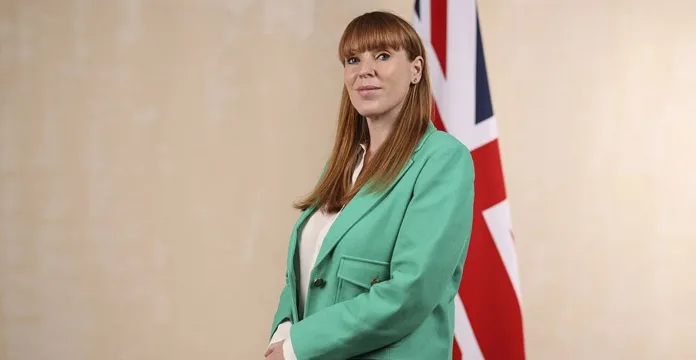Deputy PM quits after tax breach; Starmer reshuffles cabinet as Reform UK surges in polls
Keir Starmer’s government has been thrown into crisis after his deputy prime minister, Angela Rayner, was forced to resign over breaching the ministerial code on her tax affairs.
Rayner admitted she had underpaid about £40,000 in stamp duty on a seaside property in Hove, East Sussex. An investigation by Sir Laurie Magnus, the government’s ethics watchdog, found that although she had acted with “integrity” and shown “dedicated and exemplary commitment to public service,” she had nonetheless breached the code.
The 45-year-old’s resignation ends her tenure not only as deputy prime minister but also as housing secretary and deputy leader of the Labour Party. Her departure leaves Starmer without one of his most authentic working-class voices at a time when Labour is under pressure from Nigel Farage’s insurgent Reform UK.
In her resignation letter, Rayner expressed “deep regret” at not having sought specialist advice on the property deal and admitted that the relentless scrutiny had taken “a significant toll” on her family. She described her rise from “a teenage mum from a council estate in Stockport” to one of the highest offices of state as “the honour of my life.”
Starmer responded with a handwritten note, saying he accepted her decision with “real sadness” and that she would “remain a major figure in our party.”
Embed from Getty ImagesThe fallout, however, has been immediate. With Rayner’s departure, Labour faces an internal contest for the deputy leadership, a fight that could expose divisions within the party and further erode public trust. Farage wasted no time in attacking Labour, claiming Rayner’s actions “scream of entitlement” and predicting that the crisis could even trigger a general election in 2027.
To contain the political damage, Starmer accelerated a cabinet reshuffle originally planned for later in the year. The shake-up saw Yvette Cooper promoted to foreign secretary, Shabana Mahmood become home secretary, and David Lammy appointed justice secretary and deputy prime minister. In a historic first, three of the UK’s great offices of state are now held by women.
Mahmood’s promotion is particularly significant. Widely respected in Westminster for her policy acumen and political instincts, she now faces the daunting challenge of restoring order to Britain’s asylum system and curbing small boat crossings—issues that have dogged successive governments. She is also tipped as a potential future Labour leader.
Pat McFadden, the chancellor of the duchy of Lancaster, will take on Rayner’s former housing and communities brief, in a revamped department with an economic growth focus. Other reshuffle moves included Liz Kendall moving from work and pensions to become science and technology secretary, and Peter Kyle shifting to trade, replacing Jonathan Reynolds, who takes over as chief whip.
The moves bear the hallmark of Starmer’s chief of staff, Morgan McSweeney, and have been interpreted as a tilt to the right of the party. With Rayner gone, only a handful of soft-left figures such as energy secretary Ed Miliband remain in the cabinet.
Labour entered the autumn already on the defensive after a summer dominated by migration debates and Reform UK’s surging poll numbers. Now, with Rachel Reeves expected to unveil tax rises in the coming weeks, the party faces a difficult battle to regain political momentum.
For Starmer, the loss of Rayner is more than a personnel change: it removes a powerful voice who helped Labour connect with working-class voters. Without her, and under mounting pressure from inside and outside the party, his leadership faces its sternest test yet.
